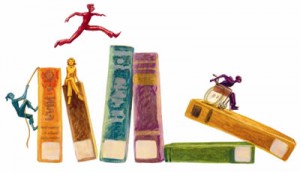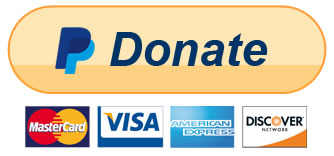Free E-Books, Brochure & Projects
 Many times the biggest struggle after being hurt is finding brain injury resources to help. The Northern Brain Injury Association (NBIA) is constantly compiling and creating resources for the residents in northern British Columbia, to assist them in accessing resources online and close to their home. Our objective is to prevent brain injuries, and bring awareness to the many barriers facing survivors of brain injury living in northern British Columbia.
Many times the biggest struggle after being hurt is finding brain injury resources to help. The Northern Brain Injury Association (NBIA) is constantly compiling and creating resources for the residents in northern British Columbia, to assist them in accessing resources online and close to their home. Our objective is to prevent brain injuries, and bring awareness to the many barriers facing survivors of brain injury living in northern British Columbia.
Libraries of the North
The Northern Brain Injury Association is very proud to have been the founder of the ‘Libraries of the North’ project, which placed brain injury books and resource materials throughout public libraries in Northern British Columbia. These brain injury resources are available through interloan services, so please be sure to ask at your local library.
2013 Northern Brain Injury Association’s Road Safety Survey (pdf)
Results from a Northern Brain Injury Association Road Safety survey conducted in six northern British Columbia communities during August of 2013. Observers were posted at select locations at random times to observe and record unsafe public behaviors while driving vehicles, and using alternative transportation (motorcycles, bicycles, skateboards, roller blades. etc.).
A general Guide To Your Safety At Work (printable brochure, pdf)
Work Safety is a three fold flyer created and produced by the Northern Brain Injury Association to increase safety awareness on the job. It points about simple things to look for and avoid in order to insure safety in the workplace. Work Safety is a great guide for those who are just entering the workforce.
Baby Me (printable brochure, pdf)
Baby Me is a three fold flyer created and produced by the Northern Brain Injury Association to help parents, families and caregivers to prevent accidents and keep small children from becoming brain injured. It is common sense advice that helps people see danger from a child’s point of view.
Childhood Acquired Brain Injury (printable brochure, pdf)
Childhood Acquired Brain Injury is a three fold flyer created and produced by the Northern Brain Injury Association that lists signs and symptoms of brain injury to help parents, families and caregivers to determine if a child has suffered a brain injury, and the appropriate course of action. The earlier a child is properly diagnosed and treated correctly, the more positive the outcome will be.
Understanding The New Me After Brain Injury (printable handout, pdf)
Understanding The New Me After Brain Injury is a simple handout of comments by brain injury survivors, sharing their challenges and how others can help them. It is based on ‘Lost & Found: What Brain Injury Survivors Want You to Know’ by Barbara J. Webster, Lash & Associates, and was created by the Northern Brain Injury Association.
The following are generously shared by their creators to help you to learn more about preventing, recovering and coping with brain injury.
Acquired Brain Injury Issues?…. Solutions?…. (pdf)
Acquired Brain Injury Issues?…. Solutions? is a free e-publication from Tasmania’s Department of Health and Human Services. And, while it pertains primarily to brain injury services in Tasmania, much of the information is universal to brain injury issues. It covers the many unsuccessful efforts of a large cross section of brain injury stakeholders to obtain adequate funding for services and support.
Traumatic Brain Injury & Return To Work (pdf)
Traumatic Brain Injury & Return to Work: A Review of Factors that Have Negative, Positive, and No Relationship to Vocational Outcome in Brain Injured Individuals is a project report by Joti Samra-Grewal, Mental Health, Law and Policy Institute of Simon Fraser University. The report makes 19 practice recommendations for rehabilitation programming and future research directions regarding brain injury patients.
Coping With Depression After Traumatic Brain Injury (pdf)
Coping With Depression After Traumatic Brain Injury was written by Margaret Brown, Ph.D., and was created by the Brain Injury Association of America for friends, family members and caregivers of persons with brain injury. It also may be used in discussions with health care professionals and others about the problems one may face when living with brain injury.(pdf)
Coping with Memory Problems after Brain Injury (pdf)
This fact sheet, provided by Headway, the brain injury association, is designed to provide basic, practical suggestions on coping with memory problems, and making the most of memory after brain injury.
Depression After Brain Injury (pdf)
Depression After Brain Injury: A Guide for Patients and Their Caregivers was created by the Agency for Healthcare and Quality. The information in this guide comes from a review of many studies about traumatic brain injury and depression. The review was conducted by an independent research center and was paid for by the Agency for Healthcare Research and Quality, a research agency of the U.S. Government.
Depression and Cognitive Complaints Following Mild Traumatic Brain Injury (pdf)
Depression and Cognitive Complaints Following Mild Traumatic Brain Injury is an article published by the American Journal Of Psychiatry, and was written by Jonathan M. Silver, M.D, Thomas W. McAllister, M.D., and David B. Arciniegas, M.D. It discusses the clinical approach to treating an individual with depression and cognitive complaints following mild TBI. Recommendations regarding the diagnosis, evaluation, and treatment of these problems are offered.
Acquired Brain Injury: The Facts (pdf)
This great guide was produced by Synapse. It is an overview of the facts about brain injury, and is a general guide to post medical care for survivors of brain injury. It covers the basics of the brain, before and after injury, and addresses many of the common issues that may be encountered.
Guidelines for Mild Traumatic Brain Injury and Persistent Symptoms (pdf)
This guide was created by the Ontario Neurotrauma Foundation, with the overall objective to create a set of guidelines that can be used by healthcare professionals to implement evidence-based, best practice care of individuals who incur a mild traumatic brain injury and experience persistent symptoms. It is not appropriate for use with patients who have incurred penetrating brain injuries, birth injuries, brain damage from stroke or other cerebrovascular accidents, shaken baby syndrome, or moderate to severe closed head injuries.
A Handbook For Families About Brain Injury (pdf)
A Handbook for Families about Brain Injury was produced by the health care team of the Acquired Brain Injury Program of Hamilton Health Sciences, in Hamilton, Ontario. The handbook helps the family understand what happens after a brain injury and how rehabilitation works. It also looks at what to expect in the future. Most importantly, it gives suggestions for dealing with problems that may arise.
Living With Brain Injury (pdf)
This guide was produced by MADD, and was funded by the US Department of Justiuce. It is an overview of living with a brain injury, and covers issues like returning to work, driving and other changes caused by injury. It was created to provide readers with good general understanding of what brain injury is, and how it may affect the survivor’s life.
Neuropsychiatric Sequelae of Traumatic Brain Injury (pdf)
Neuropsychiatric Sequelae of Traumatic Brain Injury by Vani Rao, M.D., and Constantine Lyketsos, M.D., M.P.H., is an article that provides an overview of the common neuropsychiatric sequelae (condition) of traumatic brain injury, along with a guide to the assessment and treatment of these conditions. The primary goal of the review was to demonstrate the link between psychiatry and TBI. It summarizes the post-injury epidemiology, risk factors, classification, and mechanism of brain injury.
Psychiatric Issues in Traumatic Brain Injury (pdf)
Psychiatric Issues in Traumatic Brain Injury, by Rolf B. Gainer, PhD, Dip. ABDA, is a powerpoint-like presentation that covers establishing a differential diagnosis and identifying effective treatment for individuals with TBI and behavioral health problems. It discusses effective strategies for diagnosing neurological impairment, psychiatric illness, and co-morbidity, and reviews conditions created by brain injury that can exacerbate underlying psychiatric conditions.
Recovering From A Mild Traumatic Brain Injury (pdf)
Recovering From Mild Brain Injury is an informative 14 page guide created and produced by the Canterbury District Health Board to assist survivors to undestand what has happened to them, and things that may help them to recover. The information presented is based on published scientific research and clinical studies.
The Brain Injury Book – A Guide For Patients And Their Families (pdf)
The Brain Injury Book is a guide for patients and their families, created by the Patient and Family Education Working Group of the Calgary Brain Injury Strategy. This book is dedicated to family members who are caring for a person who has a brain injury. The Brain Injury Resource Book clarifies and hopefully starts to answer some questions caregivers must face.
Understanding Brain Injury – A Guide for the Family (pdf)
Understanding Brain Injury is an informative 34 page booklet designed to be a guide for the family. It was created and produced by the Mayo Clinic. This booklet outlines a number of stressful behaviors and situations that may occur for people with brain injury. Possible solutions follow each possible stress-creating behavior or situation.
Which Helmet For Which Activity
Brain Facts – A Primer On The Brain And Nervous System
The Society for Neuroscience is the world’s largest organization of scientist and physicians dedicated to understanding the brain, spinal cord and peripheral nervous system.

